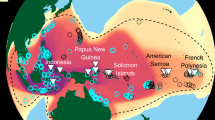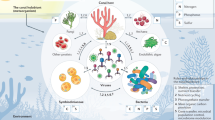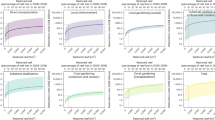Abstract
I HAVE been immersed in examinations, and away from London for a few days, so that I did not see Mr. Guppy's letter in NATURE of June 20 (p. 173) till it was too late to reply. I will now only ask space for a few last words. To me the matter does not appear to have “resolved itself into an affair of out-posts.” The position which I was led to take up from the study of the recent literature on coral reefs, and which I had hoped that I had made clear in my last letter, is this—that till Mr. Guppy can produce cases of growing reefs at depths well exceeding 25 fathoms, isolated instances of the occurrence, at such depths, of living corals which are among the reef-builders do not really help him; and that till he can do this he is only supporting hypothesis by hypothesis. For example, I have not seldom, in the Alps, gathered phanerogamous plants, flourishing and in full bloom, at elevations of eleven or even twelve thousand feet above the sea; but I should not direct anyone to this mountain zone who desired to pick a posy of Alpine flowers.
This is a preview of subscription content, access via your institution
Access options
Subscribe to this journal
Receive 51 print issues and online access
$199.00 per year
only $3.90 per issue
Buy this article
- Purchase on SpringerLink
- Instant access to the full article PDF.
USD 39.95
Prices may be subject to local taxes which are calculated during checkout
Similar content being viewed by others
Rights and permissions
About this article
Cite this article
BONNEY, T. Coral Reefs. Nature 40, 222 (1889). https://doi.org/10.1038/040222b0
Issue date:
DOI: https://doi.org/10.1038/040222b0
This article is cited by
-
Static and dynamic compressive performance of coral reef limestone: interpretations of rate effect from laboratory tests
Bulletin of Engineering Geology and the Environment (2024)



